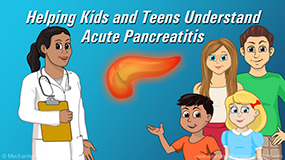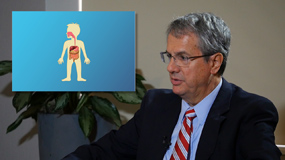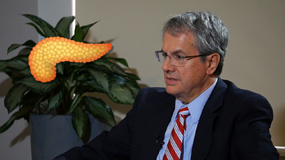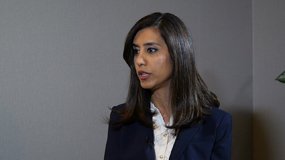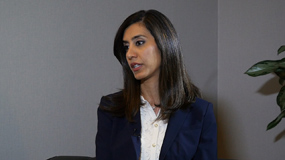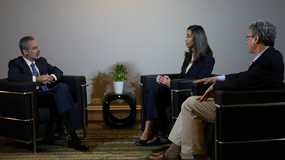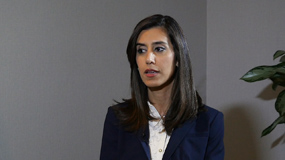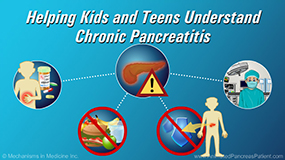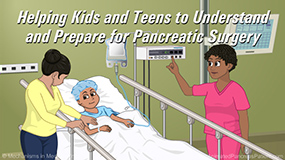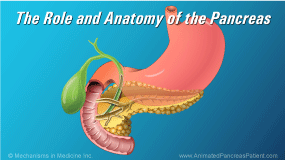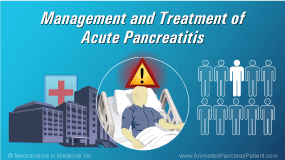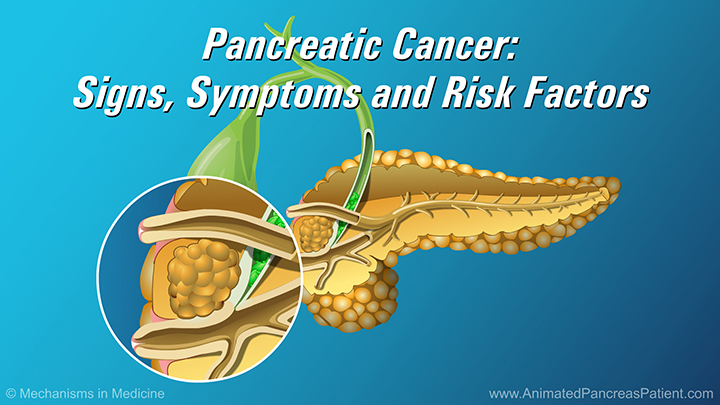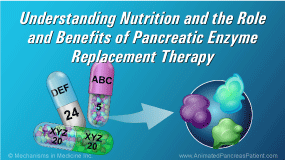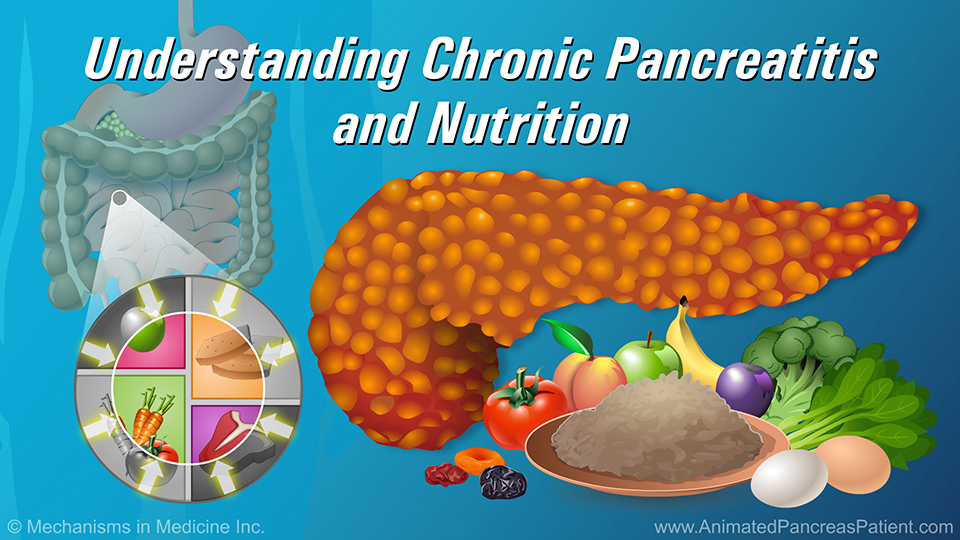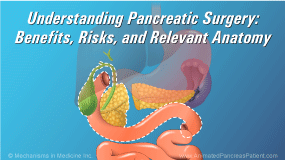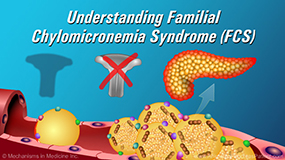Helping Kids and Teens Understand Acute Pancreatitis
*Please note: This slide set represents a visual interpretation and is not intended to provide, nor substitute as, medical and/or clinical advice.
Your pancreas is an important part of your body.
It is a large organ found just behind your stomach.
It makes special “juices” that help you to digest the food you eat.
Your doctor calls these juices “enzymes” and they are very important to your health.
When you eat, the nutrients from your food are turned into sugar which goes into your blood. Your doctor will call this “blood sugar” and it needs to be just the right amount – not too high and not too low.
To help control how much blood sugar stays in your blood after you eat, your pancreas also makes "hormones", such as "insulin".
Unfortunately, sometimes your pancreas does not work so well.
Your doctor might say, “You have Acute Pancreatitis”.
This animation will help you to understand what that means and how you can stay as healthy as possible!
Acute pancreatitis can happen quickly.
When your pancreas gets swollen because there is a problem, your doctor will talk about it being “inflamed”.
Usually it's like something you have never experienced before.
But don’t worry, your doctor can help!
You might be thinking, “Why did I get acute pancreatitis?”
Pancreatitis can be common in teenagers but even happens in younger kids.
You might also be thinking, “Why does Acute Pancreatitis happen?”
There can be lots of reasons.
Sometimes it can happen after an injury.
Sometimes it happens after a viral infection, which is when a virus gets inside your pancreas.
Sometimes it happens because there is a blockage within your pancreas.
It can even happen if it runs in your family – meaning someone else in your family has had it before you and that makes it more likely for you to get it.
Sometimes it happens because there are high levels of fat or calcium in your blood.
Even some medicines can cause acute pancreatitis.
Sometimes, doctors cannot find the cause.
So what does pancreatitis feel like?
If you have had it, you will probably never forget the feeling.
Acute pancreatitis feels like a very bad pain in your belly or sharp pain that is deep.
You might also have back pain.
You might feel like you're sick to your stomach – like being on a roller coaster for too long and you want to throw up!
The MOST important thing is to tell your parents when you think this is happening, or your teacher if you are at school. Or your doctor or nurse.
The good news is that if you tell someone quickly, they can help you get better!
You might need to visit the hospital for tests.
Finding acute pancreatitis early is important because getting treatment can make it less inflamed and help you get better faster.
A pancreas that stays inflamed can make you even more sick.
Your doctor might test your blood to learn if you have pancreatitis.
He or she may also check a sample of your stool after you go to the toilet.
Your doctor might also do other tests. Don’t worry however, as he or she will sit down with you and explain everything and you'll be able to ask any questions you may have.
Sometimes when you are at the hospital you might have to go into a room with a large machine.
There is a machine that can see inside your body to show your doctor if your pancreas is swollen or if it has a lot of liquid around it.
If the tests done by your doctor find that you have acute pancreatitis you will probably need to stay in the hospital for a few days.
Remember that your pancreas will get better if you get lots of rest.
Some medicines will also be given to you to help you.
Your doctor might tell you about special foods to eat.
After you get better, remember that there are things you can do to take care of yourself and stop this from happening again.
Eat a healthy diet with plenty of fruits, vegetables, and water.
Seeing your doctor for a checkup is important after you leave the hospital.
Having acute pancreatitis can be scary.
However, most kids usually have just one attack.
And remember: Your doctor and medical team will always be there to help you.
